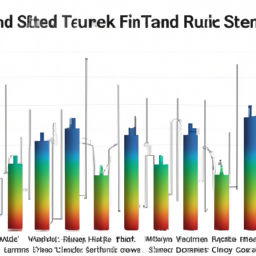Exchange traded funds (ETFs) have exploded in popularity in recent years, and exchange traded stock funds are no exception. These funds are similar to other securities in many ways, but they also have some distinct characteristics that set them apart. In this article, we'll explore what makes exchange traded stock funds unique and why investors might consider adding them to their portfolios.
First, it's important to understand what an exchange traded stock fund is. As the name suggests, these funds invest in stocks and trade on an exchange like a stock. Unlike mutual funds, which are priced at the end of each trading day, ETFs are priced throughout the day and can be bought and sold at any time when the market is open.
Another key characteristic of exchange traded stock funds is their low expense ratios. Because they are passively managed and don't require active stock picking, they tend to have lower fees than actively managed mutual funds. This can be a big advantage for investors looking to keep costs low.
One of the biggest advantages of exchange traded stock funds is their diversification. By investing in a single ETF, investors can gain exposure to a wide range of stocks across different sectors and regions. This can help to reduce risk and increase potential returns over the long term.
Another unique feature of exchange traded stock funds is that they can be traded like individual stocks. This means that investors can buy and sell shares throughout the day at the prevailing market price. This can be advantageous for investors who want to take advantage of short-term market fluctuations or make quick trades.
However, it's important to note that exchange traded stock funds are not without their risk. Like any investment, they are subject to market volatility and can experience sharp price swings. Additionally, some exchange traded stock funds use leverage or other complex strategies to boost returns, which can increase risk.
One way to mitigate these risk is to carefully evaluate an exchange traded stock fund before investing. This can involve looking at factors like the fund's expense ratio, diversification, and overall track record. Investors may also want to consider working with a financial advisor to develop a personalized strategy that takes into account their individual risk tolerance and investment goals.
In summary, exchange traded stock funds offer a unique combination of diversification, low costs, and trading flexibility that can make them an attractive addition to any investment portfolio. However, it's important to carefully evaluate these funds and understand the risk before investing. With the right approach, exchange traded stock funds can be a powerful tool for building long-term wealth and achieving financial goals.
Ticker: ETF, MF
